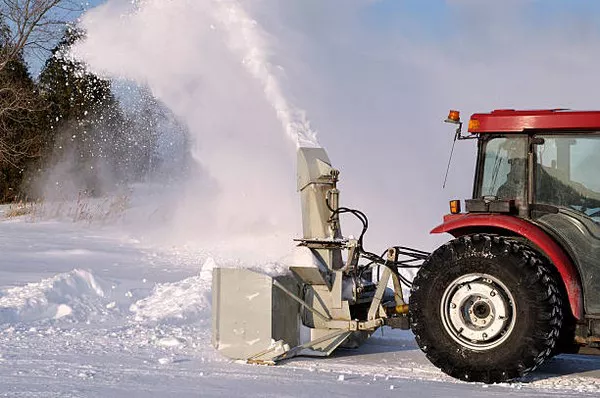Maintaining your yard machine snowblower is essential to ensure its optimal performance during the winter months. One crucial aspect of snowblower maintenance is choosing the right type of oil. The proper oil not only lubricates the engine but also enhances overall efficiency and longevity. In this article, we will explore the factors to consider when selecting oil for your yard machine snowblower and provide recommendations to keep your equipment running smoothly.
Understanding Snowblower Engines
Before delving into the specifics of oil selection, it’s essential to have a basic understanding of snowblower engines. Most snowblowers are equipped with four-stroke engines, similar to those found in lawnmowers and other outdoor power equipment. These engines have distinct components, such as a crankcase, piston, and cylinder, all of which require proper lubrication for optimal performance.
Oil Viscosity
One of the primary considerations when choosing oil for your yard machine snowblower is viscosity. Viscosity refers to the oil’s resistance to flow, and it is typically represented by a numerical value. The two numbers on the oil container represent its viscosity, with the first number indicating cold temperature performance (winter or “W” rating) and the second number indicating high-temperature performance.
For snowblower engines, it is recommended to use oil with a viscosity rating suitable for colder temperatures. A common recommendation is 5W-30 oil, where the “5W” ensures good cold-start performance. This means that the oil will flow well at lower temperatures, providing adequate lubrication during the winter months when snowblowers are most frequently used.
Synthetic vs. Conventional Oil
Another crucial consideration is whether to use synthetic or conventional oil. Synthetic oils are engineered in a laboratory to provide superior lubrication and performance compared to conventional oils. They often offer better resistance to extreme temperatures, reduced friction, and enhanced protection against wear and deposits.
While synthetic oils generally come at a higher price point, they may provide better overall engine protection, especially in harsh winter conditions. If you are looking for maximum performance and protection for your yard machine snowblower, synthetic oil may be a worthwhile investment.
Manufacturer Recommendations
To ensure that you are using the most suitable oil for your yard machine snowblower, always refer to the manufacturer’s recommendations. Manufacturers provide specific guidelines for oil type, viscosity, and other maintenance requirements in the owner’s manual. Following these recommendations is crucial to maintaining the warranty and ensuring optimal performance throughout the snowblower’s lifespan.
It’s worth noting that different snowblower models may have varying oil requirements, so even if you have experience with a particular brand, it’s essential to consult the manual for each specific model.
Oil Change Frequency
Regular oil changes are a fundamental aspect of snowblower maintenance. Over time, oil can break down, lose its viscosity, and become contaminated with debris. Failure to change the oil at recommended intervals can lead to reduced engine performance, increased wear and tear, and even engine damage.
The frequency of oil changes depends on factors such as usage, operating conditions, and the specific recommendations of the manufacturer. As a general guideline, it is advisable to change the oil at the beginning of each winter season or after every 25 hours of operation, whichever comes first. This ensures that the engine is consistently lubricated with clean oil, promoting optimal performance and longevity.
Tips for Changing Snowblower Oil
Changing the oil in your yard machine snowblower is a straightforward process that can be done with a few basic tools. Here are some tips to help you through the oil change process:
Warm Up the Engine: Before draining the oil, run the snowblower for a few minutes to warm up the engine. Warm oil flows more easily, allowing for a more thorough drain.
Disconnect the Spark Plug: For safety reasons, disconnect the spark plug wire to prevent accidental starts while you are working on the snowblower.
Position the Snowblower: Place the snowblower on a flat, level surface to ensure proper draining. It’s also a good idea to position a drain pan underneath the oil drain plug to catch the used oil.
Remove the Oil Drain Plug: Locate the oil drain plug on the engine, typically positioned at the base. Use a wrench to loosen and remove the drain plug, allowing the used oil to drain into the pan.
Replace the Oil Filter: Some snowblowers come equipped with an oil filter. If your model has one, replace it during the oil change for comprehensive maintenance.
Refill with Fresh Oil: Once the used oil has drained completely, replace the drain plug and refill the engine with the recommended oil and quantity specified in the owner’s manual.
Check the Oil Level: After adding fresh oil, check the oil level using the dipstick. Adjust as needed to ensure the oil level is within the recommended range.
Dispose of Used Oil Properly: Used oil is considered hazardous waste and should be disposed of according to local regulations. Many auto parts stores and recycling centers accept used oil for proper disposal.
Conclusion
Choosing the right oil for your yard machine snowblower is a critical aspect of maintenance that directly impacts its performance and longevity. By considering factors such as viscosity, synthetic vs. conventional oil, manufacturer recommendations, and regular oil change intervals, you can ensure that your snowblower operates at its best when the snow starts falling. Always consult the owner’s manual for specific guidelines and, when in doubt, seek the advice of a professional technician to maintain your snowblower in top condition for many winters to come.

